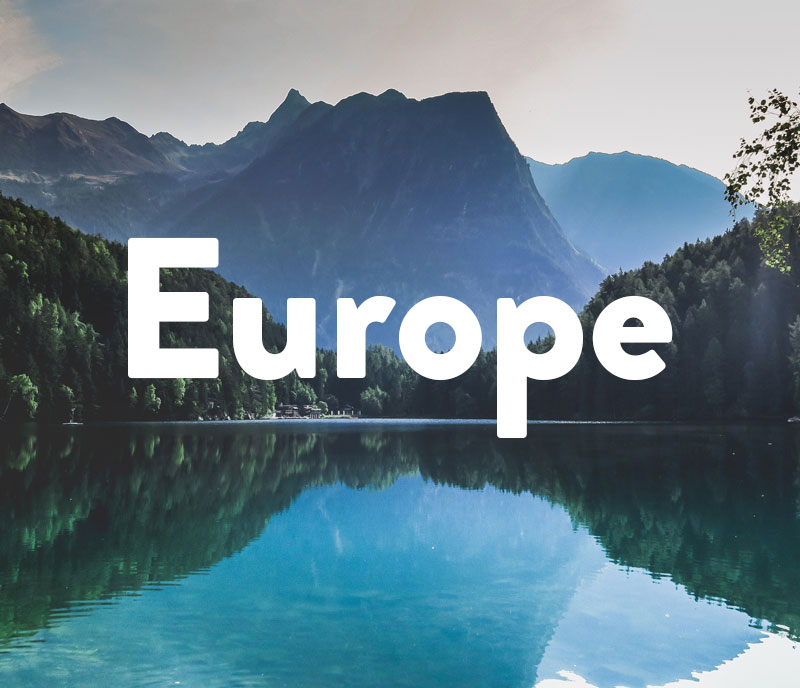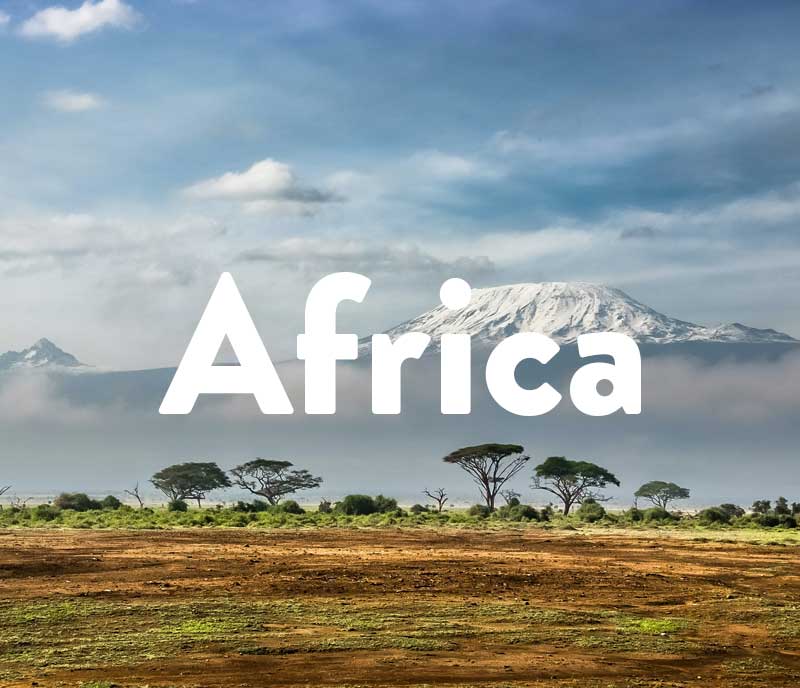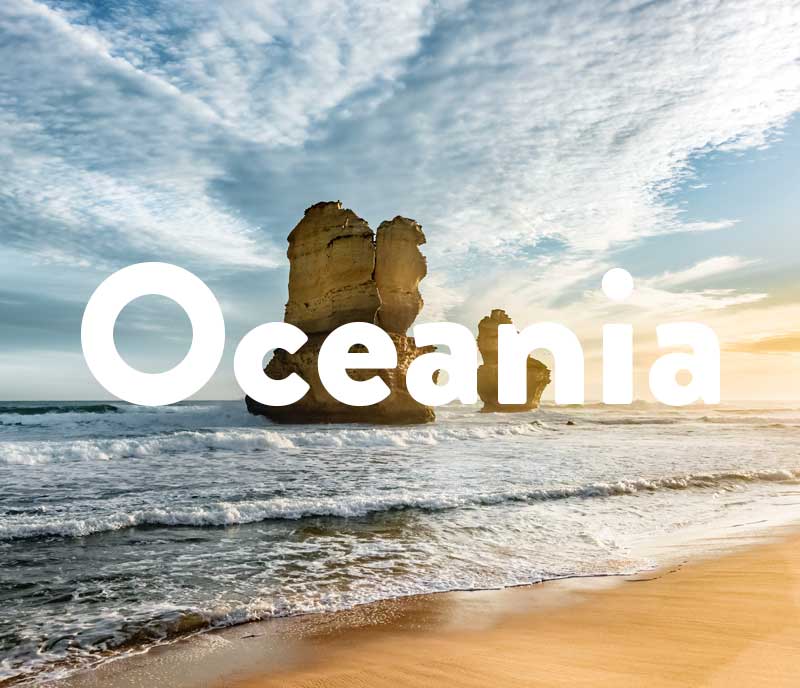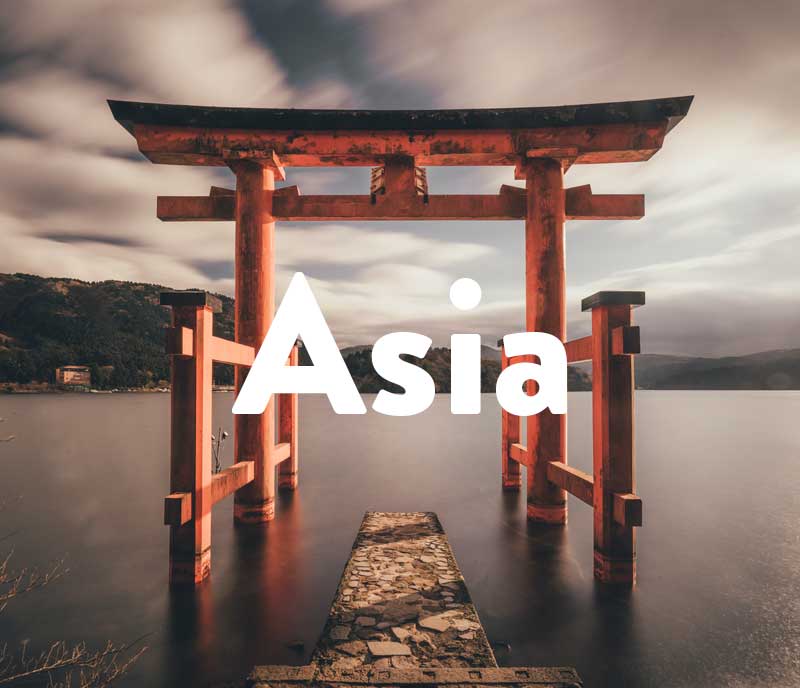Are you thinking about traveling to Algeria? It might surprise you to learn that one of the most fascinating, beautiful, and prominent countries in Africa remains largely undiscovered by travelers despite its rich culture, history and friendly people. If you’re ready to go, read on to learn how to get a visa, what to pack, and other fun facts.
Dive into our (free) travel guides below!
.
.
.
.
.
.
.
.
The Key Info
At 2,381,741 square km (919,595 sq mi), Algeria is Africa’s largest country and the tenth largest in the world. It sits on the northern part of the continent. The Mediterranean Sea borders it to its north, Morocco to its west, Libya to its east, and Western Sahara, Mauritania, and Mali in the southwest, and by Niger in the southeast.
Its 40.4 million citizens only inhabit the country’s small coastal region since the Sahara Desert covers the southern portion of Algeria. The country’s natural vegetation patterns vary according to its north-south climate differences. What with its different elevations, even more variation is brought in.
Algiers, the capital city, sits west of the Mediterranean Sea and enjoys a more moderate climate ideal for tourism. 2,988,145 of Algeria’s total population lives in Algiers, which is also its largest city at 363 sq km (140.2 sq mi). Algeria’s official language is Arabic.
Algeria in Numbers
- Population: 44 million
- The total size of the country: 2,381,741 sq km (919,595 sq mi),
- Capital city: Algiers
- Currency: Algerian dinar
- Language: Arabic and Tamazight (Berber)
- Religion: Muslim (99.7%), Christian – majority Roman Catholics – (0.3%)
The 5 Largest Cities in Algeria
Algeria’s economy has ushered in urbanization and ensured growth in its top cities. Visitors will discover unique sights and sounds in the five largest cities in Algeria:
1. Algiers – Population: 2,481,788
Algiers is Algeria’s capital and its largest city in the north-central area of the country. Its top sightseeing spot is the Casbah, the old part of the city that includes the Casbah Palace and several historical mosques.
2. Oran – Population: 609,940
A port city in the northwest part of the country, Oran is brimming with culture. While travelers can find historical sites like Fort Santa Cruz and Pacha Mosque, a worthwhile but less touristy attraction is the Museum of Modern Art of Oran.
3. Constantine – Population: 448,374
Sitting on a natural fortress overlooking the Rhumel River 650 m (2,130 ft) above sea level, this northeastern city a “must-see” sight. You can also visit Roman ruins in Tiddis.
4. Batna – Population: 290,645
Batna is another northeastern city in Algeria. Considered a “young” city, you’ll discover a wealth of archeological finds at the Museum Tazoult.
5. Djelfa – Population: 289,226
Sitting in north-central Algeria in the Ouled Naïl Range, Djelfa is the fifth largest city by population. Top attractions here include Neolithic rock carvings from 7000 to 5000 BC and the famous Rocher de Sel (Salt Rock).
TOP Tourist Attractions
Whether you’re looking for rare Roman ruins, shopping for souvenirs, or to go on a safari in the famous Sahara Desert, Algeria has things to see and do that will thrill you. Here are the top tourist attractions that should be on your itinerary:
1. Tipasa Roman Ruins
A 74 km (45 mi) drive from Algiers, the modern city of Tipasa is home to ruins from Roman, Byzantine, Phoenician, and early Christian eras, all overlooking the captivating Mediterranean.
2. Palais des Rais
You’ll find this last surviving quarter of lower Casbah in the capital. Three Ottoman-era palaces and six houses represent Algiers’ unique architecture, which includes the likes of ornate tiled arches and painted railings.
3. The Sahara Desert / Ghardaia
No trip to Algeria would be complete without visiting the world-famous desert. Ghardaia in South Central Algeria is but one of the numerous gateways to the Sahara. But this tightly packed city invites exploration on its own merit.
4. Botanical Garden El-Hamma Jardin d’Essai
Located in Algiers, this gorgeous garden’s history stretches back to 1831. Visitors will not just find various species of plants and ornate fountains, but a zoo and museum too.
5. Madagh Beach, Playa Chenoua, and Tamanart
While the Sahara Desert receives more attention from travelers, locals know that the country has the best beaches too.
Best Time to Travel
Algeria’s small coastal region experiences the typical Mediterranean climate with hot, dry summers and mild, humid winters. Many tourists find that the best time for sightseeing in Algeria is between March and July, when the days are warm and dry enough to explore the country’s abundance of historical sites.
However, if you are planning a Saharan safari, November to April brings cooler weather ideal for visiting the desert. Avoid Algeria in August when the locals crowd its beaches and the country experiences its hottest temperatures.
Safety Tips
Algeria is a conservative Islamic country. Here are some safety tips:
Women – Dress conservatively to be respectful of the local culture. Consider wearing a headscarf particularly when visiting religious sites.
LGBTQ – Homosexuality is unfortunately illegal in the Algeria. You could receive a financial penalty and possibly a three-year jail sentence. Always be discreet and follow the local laws to ensure your safety.
BiPOC – Avoid all physical contact in public with the opposite sex even among your traveling companions.
Holidays in Algeria
Algeria has a variety of holidays year-round that commemorate its diverse art, culture, food, music, sports, and history that travelers can explore. Here are its most important holidays:
- January 1: New Year’s Day
- January 12: Yennayer (Berber New Year)
- February 22: Day of Fraternity and Cohesion
- May 1: Labour Day (International Workers’ Day)
- May 24: Eid-ul-Fitr (End of Ramadan)
- July 5: Independence Day
- July 31: Eid Al Adha (Sacrifice Feast)
- August 20: Awal Muharram (Islamic New Year)
- August 29: Ashura (10th day of Muharram)
- October 28-29: Mawlid (Birthday of Prophet Muhammad)
- November 1: Anniversary of the Revolution
Here’s a full list of Algeria’s major holidays.
Do I Need a Visa?
Several countries don’t require a visa to travel and stay in Algeria for tourism for 90 days. They include Malaysia, Mali, Mauritania, Morocco, Libya, Sahrawi Arab Democratic Republic, Seychelles, and Tunisia. If you are traveling to Algeria but are not from any of these countries, you need to get a tourist visa which will let you visit the country for 30 days.
Besides the primary document requirements (passport photocopy, Algeria Visa Application Form, etc.), you must also provide proof of accommodation in Algeria, such as a hotel reservation or an invitation from a host.
For more information, visit the Algerian embassy or consulate in your country.
Algeria’s Currency
Travelers will have an easier time enjoying the sights, sounds, and shopping in Algeria by becoming familiar with its national currency, the Algerian dinar (DZD/AD).
While credit cards such as Visa and Mastercard are welcome in major cities like Algiers, less touristy areas might not accept them. That means your best bet is to carry the local currency with you. The Algerian dinar comes in banknotes available in 1000, 500, 200, 100 and 50 denominations and coins in denominations of 100, 50, 20, 10, 5, 2 and 1.
As a rule of thumb, get your money converted before you leave home to take advantage of a better conversion rate.
DOS and DON’TS in Algeria
| Get your visa ahead of time at the Algerian embassy or consulate in your country. There may be some unexpected requirements, like providing a letter from a government-licensed tour agency. (See “Do I Need a Visa?” above). | Avoid traveling near Algeria’s borders to other countries, which can be unsafe. The country itself is safe for tourists |
| Always support local artisans and producers when traveling in Algeria, especially when you shop for souvenirs. | Avoid the local bars if you want to avoid smokers since there’s a high density of smokers at these locations. |
| Haggle and bargain before you buy, so you have a taste of Algeria’s culture and language. It’s commonplace in the country. | Algeria is a Muslim country, so dress comfortably for the heat but conservatively. |
| Sample the national dish of Algeria, couscous, which originated from its indigenous Berber culture. | Avoid getting around by bus since there is no official schedule or places to check. Rent a car instead for convenience and comfort. |
| Don’t flaunt your iPhones, jewellery, or money/credit cards. Not only is it rude, it’s tempting to petty thieves. |
Must-Haves for Your Algerian Packing List!
Do you already have a trip to Algeria planned? Packing for its multiple climates might seem challenging and cumbersome. Before you pack everything, read the must-have items below to ensure you travel comfortably, sensibly, and light.
- While Algeria is a liberal Muslim country and there is no dress code (Algerians dress as they please), it’s still best to dress conservatively.
- The country experiences nearly 300 days of sun annually. Think about the kind of experiences you want. From going to the beach (bikinis are okay) to dinner at a fine restaurant (no jeans and sneakers), you need to think ahead.
- Walking shoes, sunglasses, and hats are always practical for travelers, especially hikers, under a scorching sun.
- Don’t forget to pack your prescriptions and other essential health supplies. They may not be available where you travel.
- Bring an unlocked mobile and buy a local SIM card to stay connected even when you’re not at your hotel.
Secret Tips from Bloggers
Want a second opinion? Here are some hot tips by bloggers who’ve been to Algeria already.
- Part of Momtaz’s, “9 Need to Know Tips for Visiting Algeria” covers traveling safely in Algeria, especially if you’re traveling alone.
- Ramblin’ Randy has a detailed journal of his Algerian journey that you can follow from start to finish. Read it to inspire you to try the local cuisine and walk its winding streets.
- If you’re off for just a couple of weeks, read Global Gaz’s 12-day itinerary from Algiers to Timimoun. Pick up some practical tips such as buying a SIM card at the airport.
TOP 7 Instagrammable Places in Algeria
- #batna with 761k posts
- #tlmecen with 669k posts
- #algiers with 443k posts
- #saharadesert with 430k posts
- #ghardaia with 27.7k posts
- #djanet with 19.5k posts
- #timimoun with 13.6k posts
Fun Facts about Algeria
Here are some interesting facts about the largest country in Africa, which may surprise you…
- The official name of Algeria is the People’s Democratic Republic of Algeria.
- Algeria has no debts to other countries thanks to a sizeable revenue from natural gas exportation. However, many Algerians continue to live in poverty.
- Algeria produces a mint tea called Etzai that is not just drunk widely throughout the day but popularly given as a gift.
- Rai (pronounced “rye” or “rah-AY”) translates as “opinion.” It is the most popular music genre in Algeria and combines popular music and traditional Bedouin desert music.
- The French Foreign Legion was once based in Algeria near Oran. It returned to France in 1962.
Keep on reading…
- Winter city breaks 2024 — 10 wonderful destinations around the world
- Holiday at home — plan a relaxing autumn staycation
- Autumn photography — 10 tips for capturing seasonal snapshots
- Tips for your autumn trip — our autumn favourites
- City breaks in autumn 2024 — 8 unforgettable destinations across Europe







